13 items you should never put in the dishwasher, according to experts
Dishwashers may be convenient, but professionals say these 13 things should be washed by hand
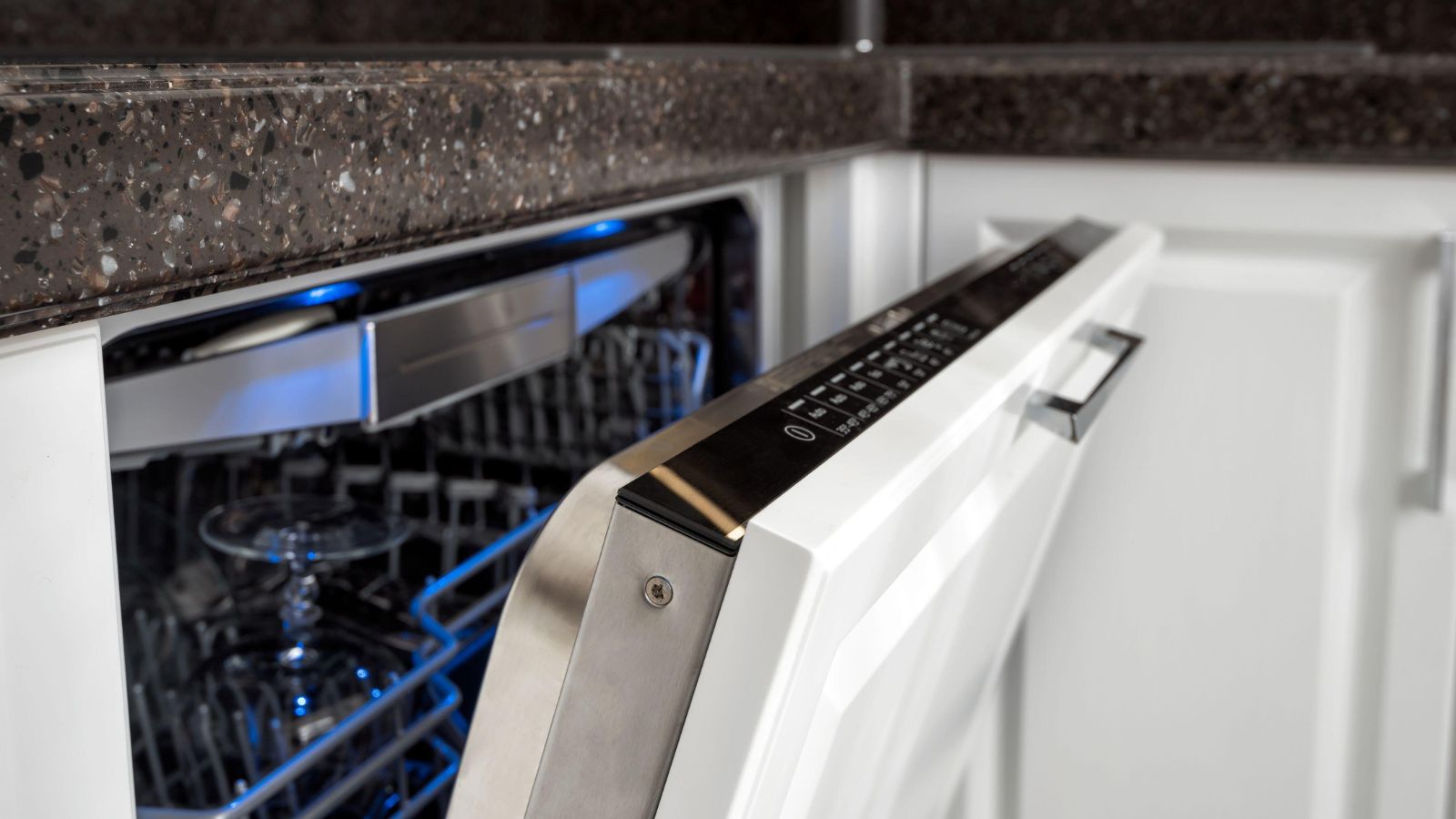

Dishwashers are a luxury in a kitchen due to their convenience, but there are some things that are better off left for the sink, experts say.
When choosing kitchen appliances, a dishwasher is often at the top of many of our lists, and knowing what not to put in a dishwasher can make sure this additional appliance continues to serve our homes for years to come. Putting the wrong things in your dishwasher could result in extra work – or even extra costs if your dishes, or your dishwasher itself, ends up broken.
Here, experts share 13 things you should avoid putting in your dishwasher to help prolong its lifespan and keep your kitchenware in top shape too.
What not to put in a dishwasher
When weighing up dishwashers vs washing by hand, the cost to run a dishwasher is usually a key consideration. However, working out which is best for your kitchenware could be more important in prolonging your dishwasher's life. 'Dishwashers are a helpful addition to everyday living, but what often gets missed is that they are not meant for every kitchen item,' explains Joe Authbert, buying manager at ProCook. 'Despite saving on time spent washing up, dishwashers can cause damage to some kitchen essentials.'
1. Sharp, high-quality knives
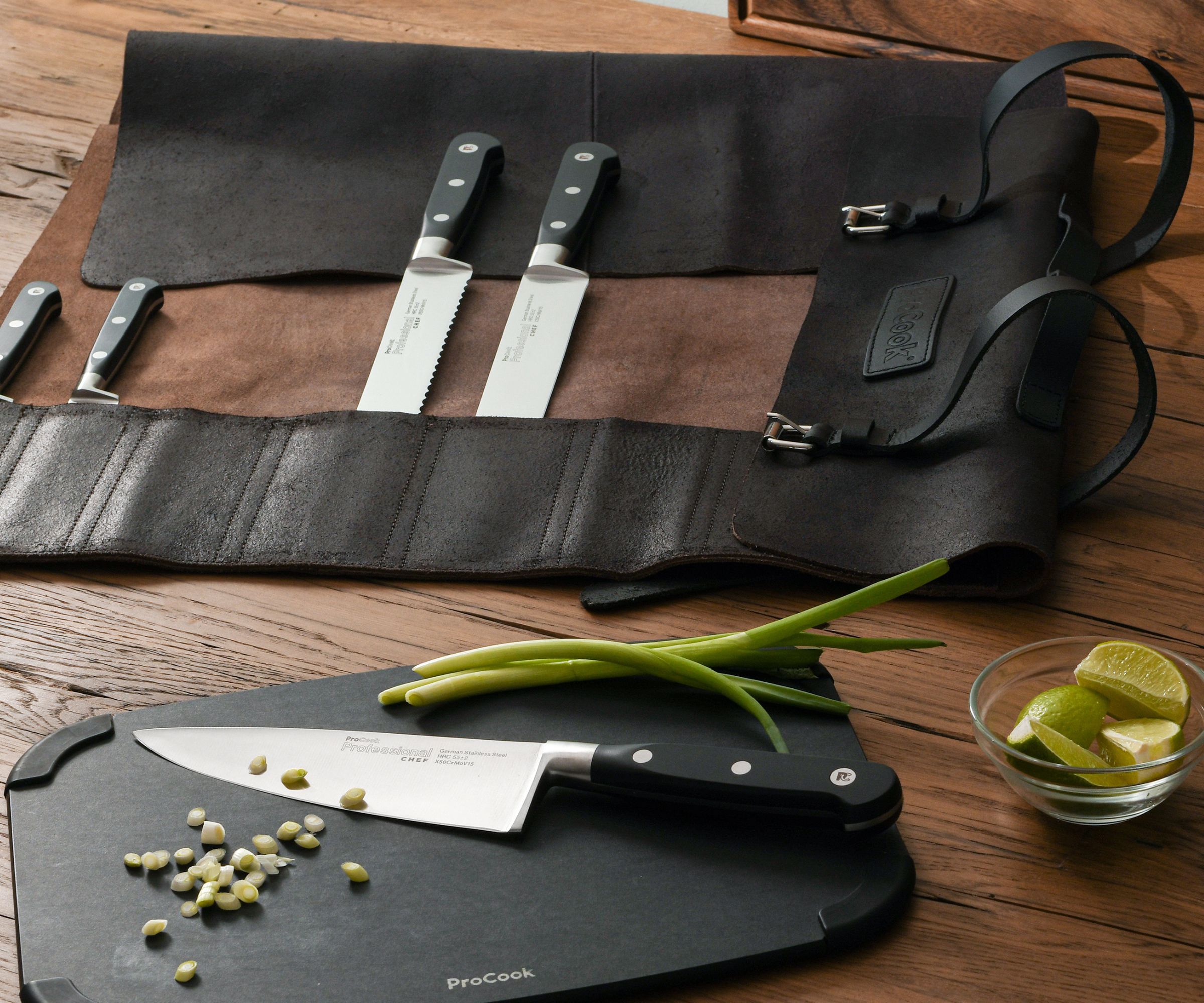
People might argue that these are one of the things that should go in the top rack of your dishwasher, but, in fact, putting your best kitchen knives in the dishwasher is a good way of shortening their lifespan. 'Dishwashers can have a devastating effect on the quality of kitchen knives,' says Joe Authbert, of ProCook. 'They are abrasive and depending on the type of detergent used, the washing process can lead to rust or corrosion on the knife’s blade.' Instead, taking time to wash sharp blades by hand and drying them soon after can help to keep them chopping their best for longer.
2. Non-stick pots and pans
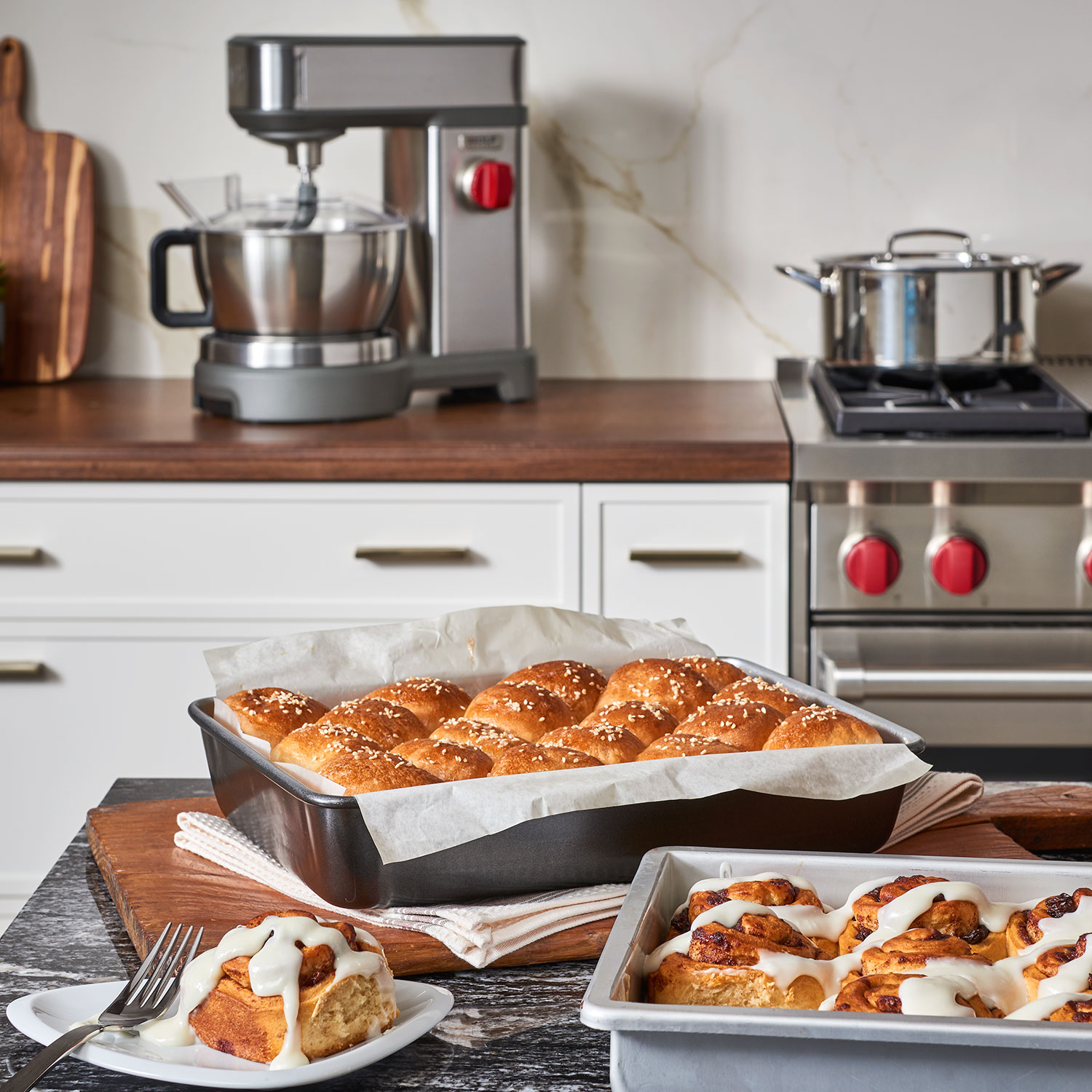
Unless the manufacturer's instructions explicitly state that your non-stick pans are dishwasher safe, most cookware with protective non-stick coatings should be left for the sink. A dishwasher provides a very thorough clean, designed to get bits of food off of plates and clean masses of utensils in one go, meaning they are not programmed for the delicate treatment non-stick patinas require. Dishwasher jets can quickly erode the coating, causing it to flake off during cooking and ruining food.
'Dishwashers could also remove chip enamel, and non-stick coatings, or cause discoloration on aluminum pots,' adds cleaning expert Sarah Dempsey at Myjobquote. 'Copper pots should also never be placed in the dishwasher as this could cause discoloration and pitting.'
Instead, wash non-stick pans by hand in the sink with gentle dish detergent. If their coating is working correctly, they should be simple to clean in minutes.
3. Cast iron pans
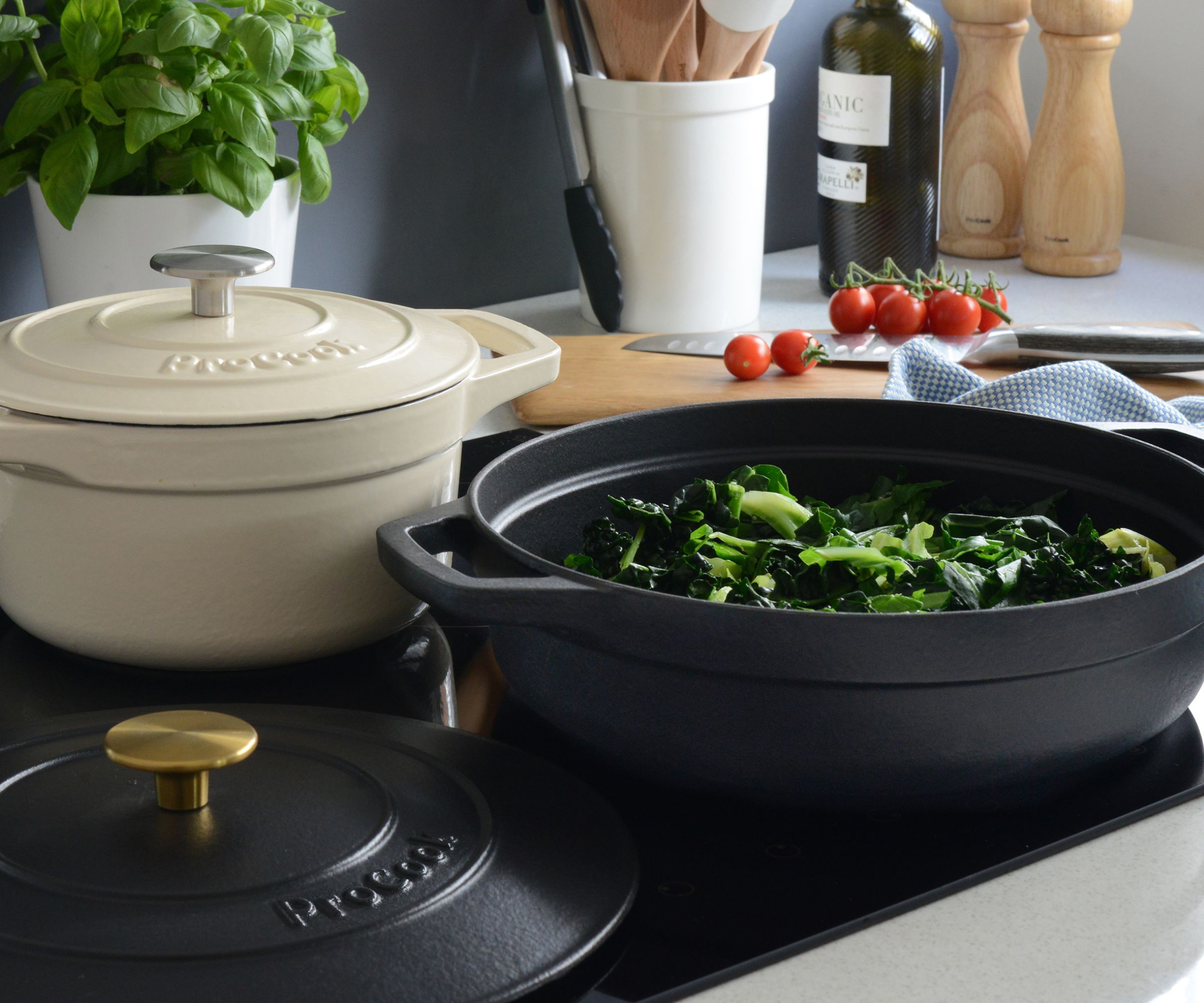
‘Cast iron pans can’t go in the dishwasher or be soaked for a long time’ explains chef and nutrition coach, Lisa Marley. Cast Iron skillets require a lot of care and attention to develop a non-stick patina, and harsh dishwasher detergents and strong water jets can quickly undo your hard work seasoning a cast iron pan and leave the pan vulnerable to rust.
‘Always allow the pan to cool before trying to clean it. You can use a very small amount of washing up liquid, warm water, and a non-abrasive sponge,’ Lisa adds. ‘If food is really stuck then place the pan on the hob and add just under a cup of water, bring to a boil and it should start to loosen.’
4. Already clean or pre-rinsed dishes
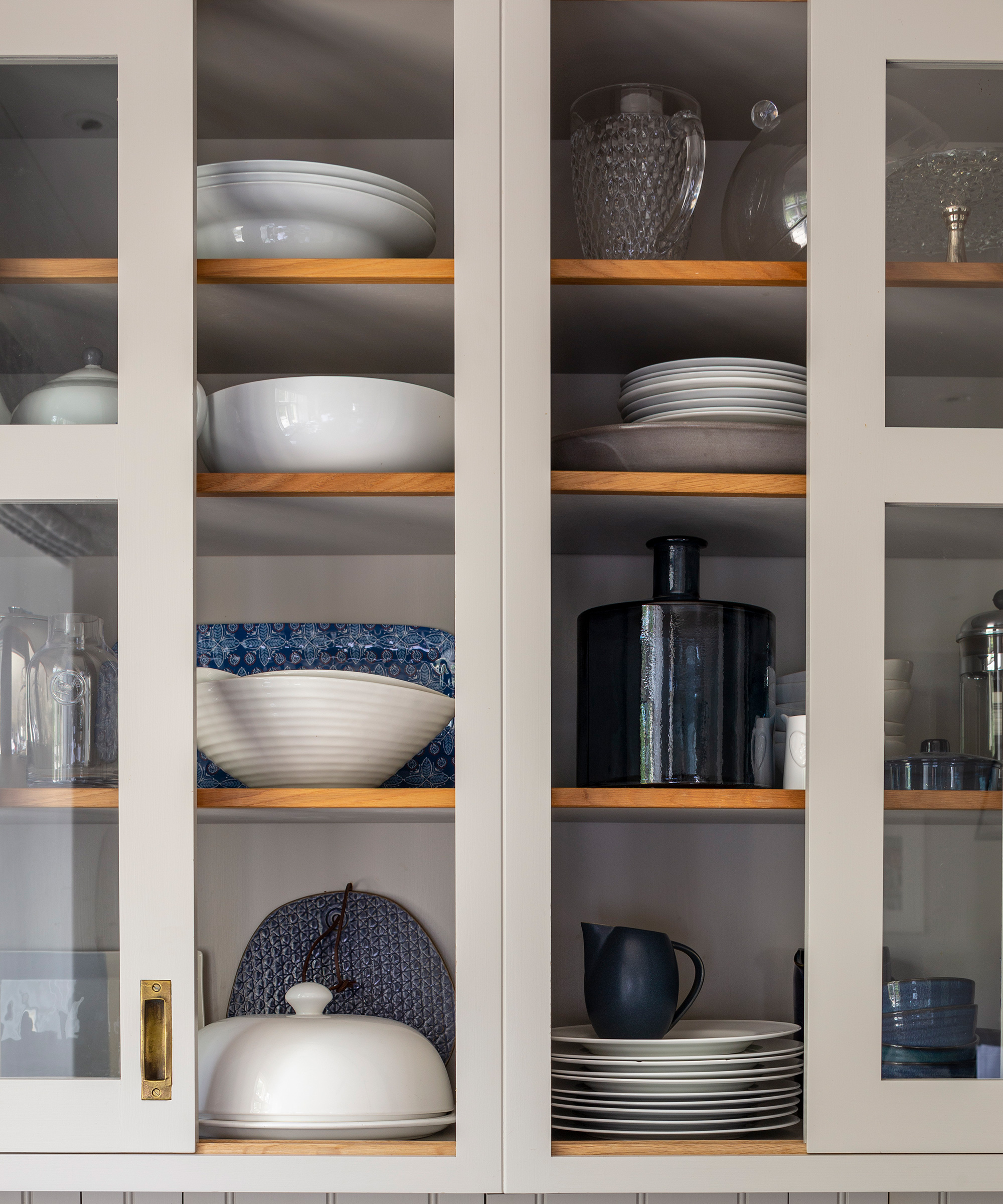
‘One tip, and one that often shocks, is don’t rinse your plates before they go in,’ explains Tor Rydder, a cleaning and home organizing expert and the founder of Organizing.TV. ‘Most dishwashers and dishwasher tablets are designed to work with food particles to make sure your dishes are as clean as can be, rinsing beforehand could hinder this.’
When loading a dishwasher, make sure that no large chunks of food or leftovers remain on the plates, however, as this can cause blockages and make it difficult to clean a dishwasher. Scrape the plates off into the trash if needed before putting them into the machine to be cleaned thoroughly.
5. Antique kitchenware and delicate glasses
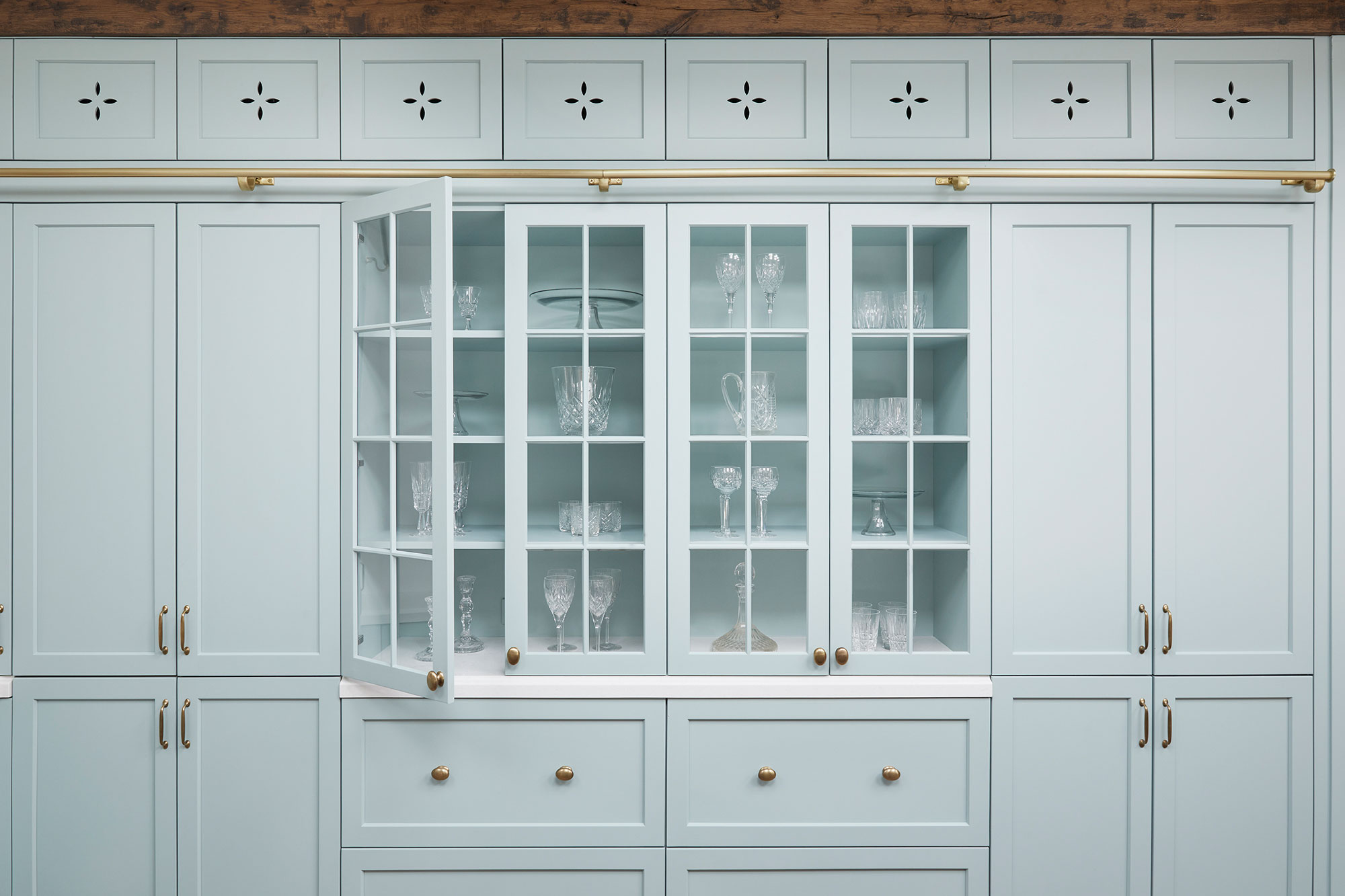
If your kitchen is home to some gorgeous antique cookware, then these precious items should be treated with a more careful hand than the dishwasher. 'Hand-blown or hand-painted glasses should not be placed in the dishwasher as they may ruin,' advises cleaning expert Sarah Dempsey. 'Crystal glasses should also be hand washed to avoid breakages.'
Old ceramics, fine china, or delicate glass should be rinsed in the sink with a gentle, nonabrasive brush or cloth and left to dry somewhere safe as opposed to exposing them to harsh dishwasher jets.
6. Thin plastic, or otherwise flimsy, food storage or dinnerware
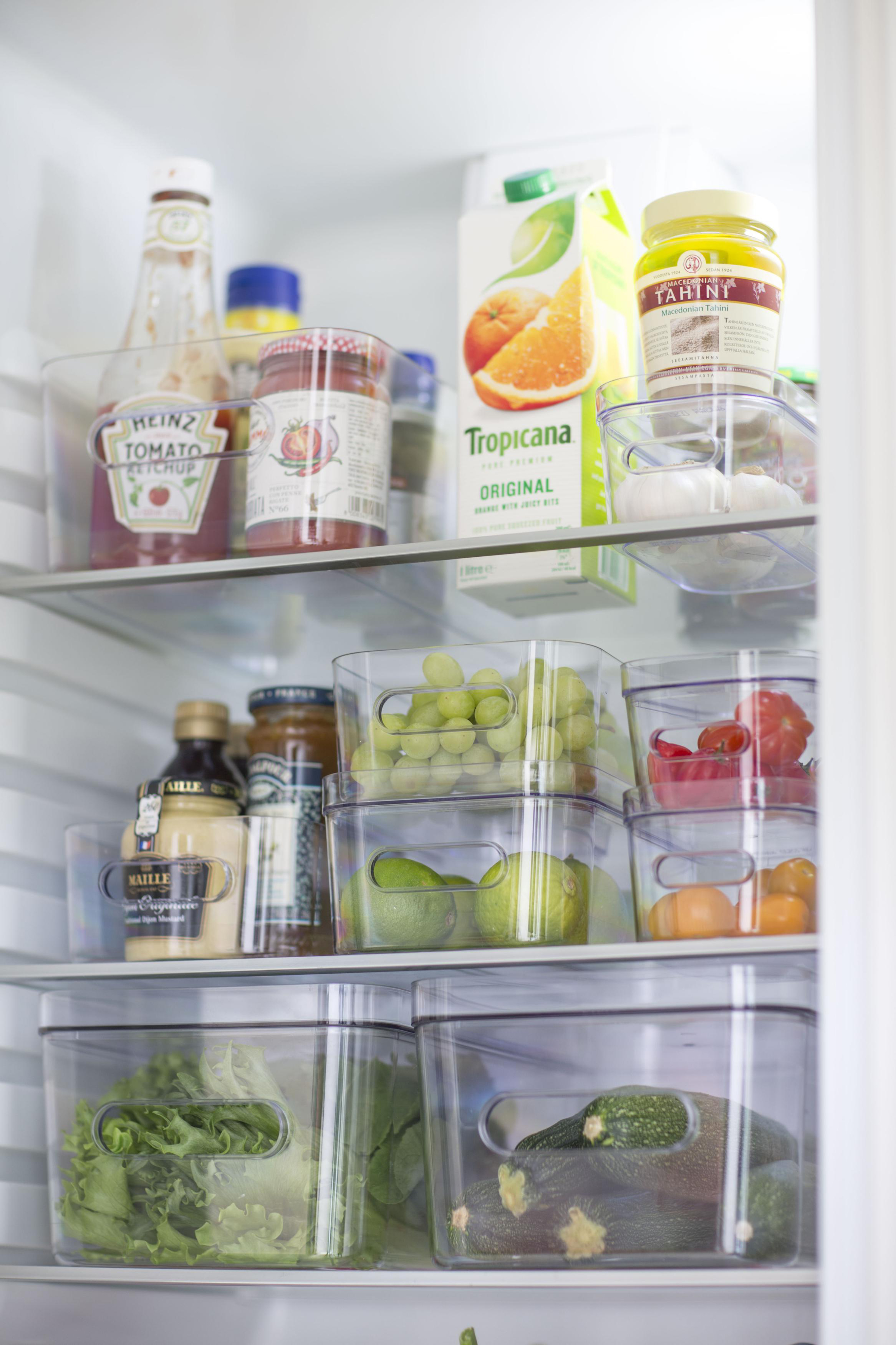
‘A lot of times it is more common things like plastic dishes that aren't "dishwasher safe",’ says Tim Jankowski, a water damage restoration expert and president of Aladdin's Cleaning & Restoration. ‘They break and then damage filters, which then can cause the machine to break or leak.’
Most plastic products have the dishwasher suitability printed on the base, so check the manufacturer's instructions first before risking damage to your dishwasher.
7. Insulated travel mugs

Many insulated travel mugs are not dishwasher safe. 'After a wash in the dishwasher, travel mugs can lose their airtight properties, this applies to plastic and metal insulated cups.' ProCook's Joe Authbert warns. 'The insulated airspace keeping both cold and hot liquids at a consistent temperature can become compromised and lose efficiency. If you must wash these in a dishwasher, place them on the top rack of the dishwasher and put the machine on low heat without a drying cycle,' Joe recommends.
8. Gold, brass, or bronze-colored flatware
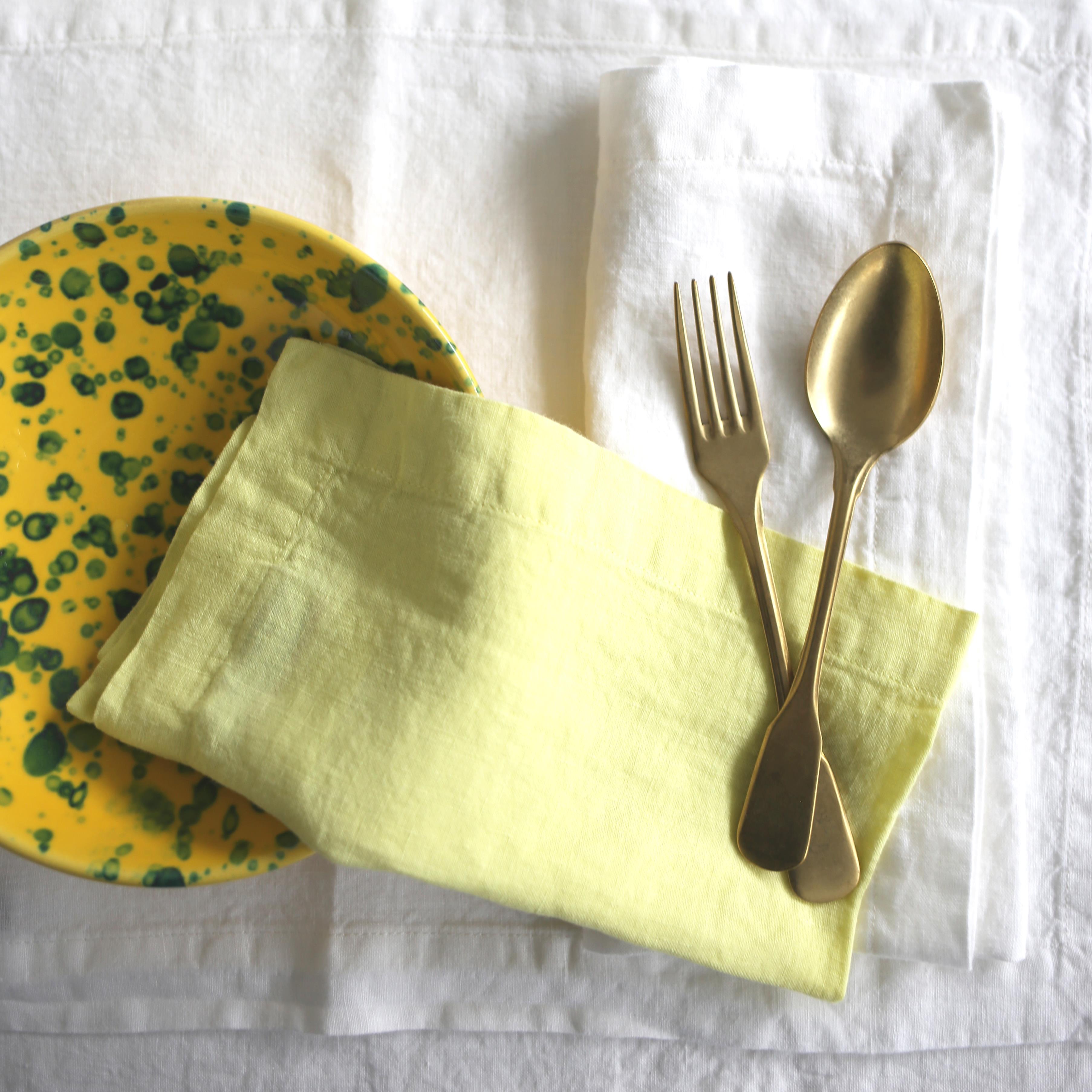
Although there are some brilliant hacks to get flatware sparkling in a dishwasher, like using aluminum foil in the dishwasher for silver cutlery, warm-toned metals are likely to tarnish or become dull. To maintain the beauty of special pieces like these, consider hand washing and polishing after each use instead.
9. Anything that doesn't belong in a kitchen
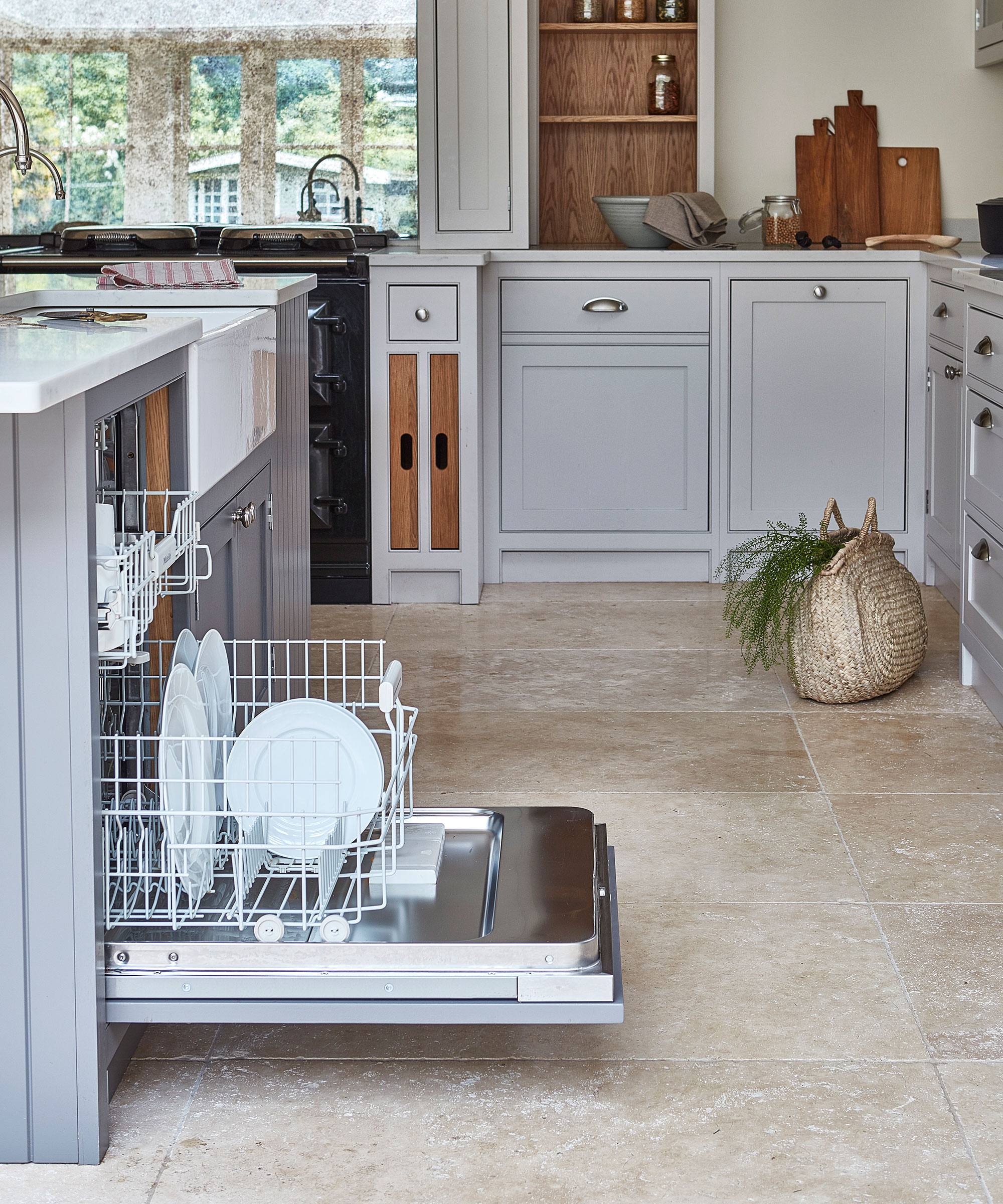
It should go without saying that dishwashers are made for kitchen items and dinnerware only. Although there are some interesting hacks on the internet for things that can go in a dishwasher, sticking to food-related items can help to preserve the lifespan of your appliance. ‘I have seen numerous things washed in dishwashers that shouldn't be. One of the more surprising ones was a tie rod from a car!’ reveals Tim Jankowski, a water damage restoration expert. ‘The rod was caked in grease and the grease completely clogged the dishwasher, causing significant water damage to the kitchen.’
10. Utensils and chopping boards made from wood
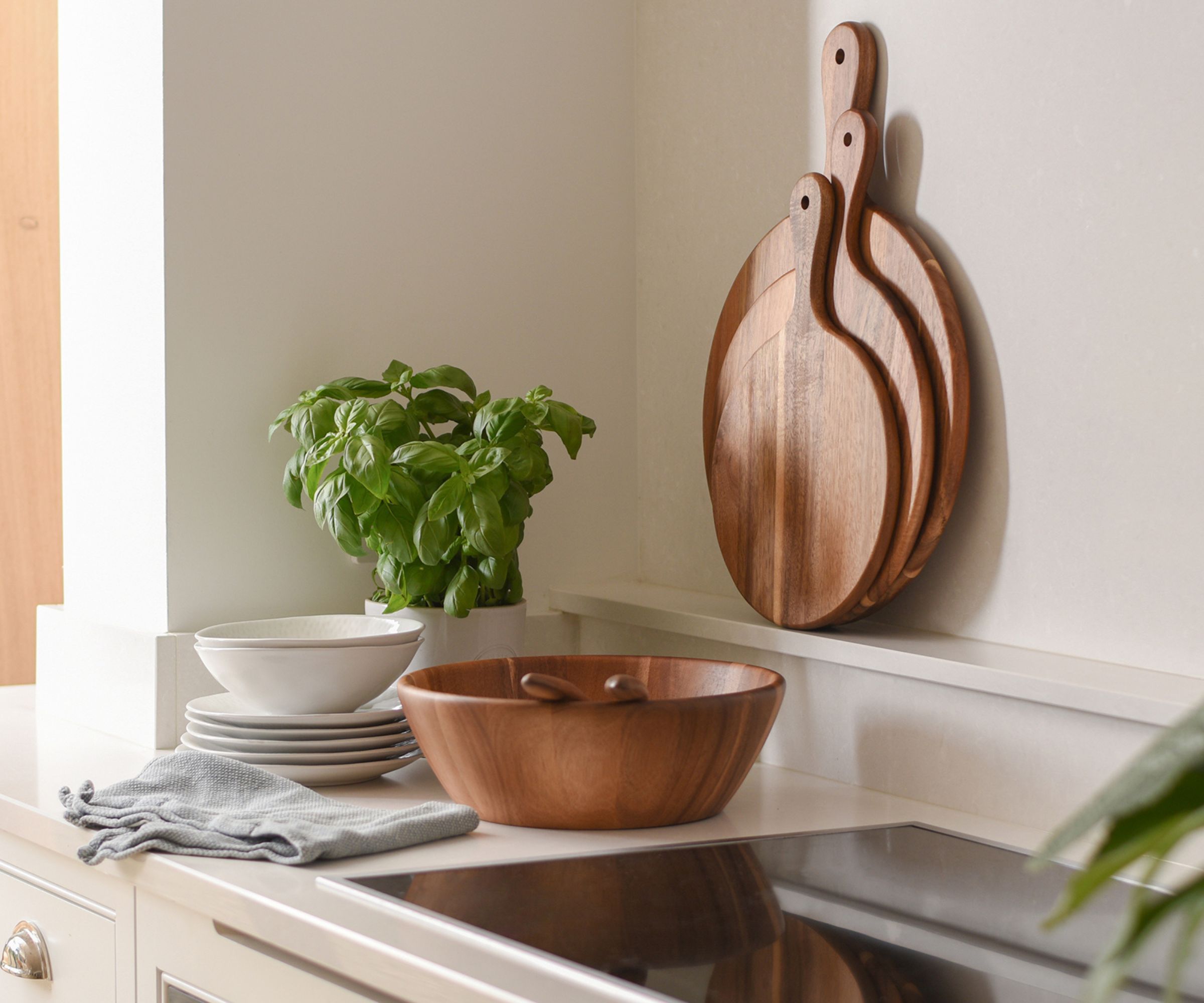
Wooden kitchenware looks fantastic and is often high quality. Because of this, however, it has no place in a dishwasher. Wood will eventually rot when exposed to water for long periods of time, especially if the high temperatures and powerful water jets of a dishwasher have eroded the protective coating or finish most kitchen items like cutting boards have.
'The dishwasher is a perfect storm for warping or cracking wooden kitchen utensils and cutting boards thanks to its hot water and dry heat settings. This can completely ruin a wooden kitchen product, and also make the wood appear dull,' adds Joe Authbert of ProCook.
Wiping these things down in the sink and drying them as soon as possible is the best way to ensure these wooden utensils will stand up to the rigors of daily use.
11. Too many things at once
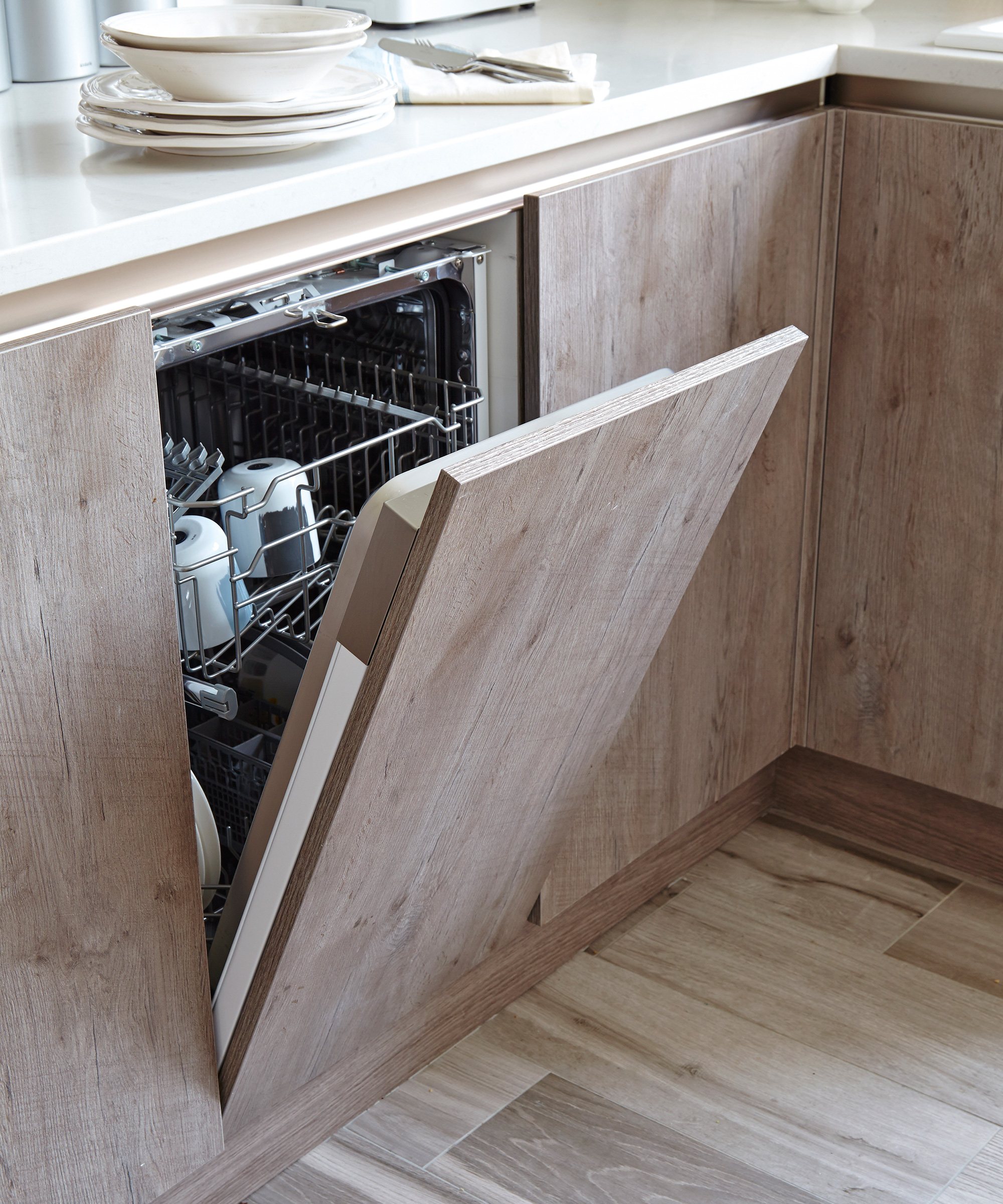
It is safe to assume that almost everyone with a dishwasher has been tempted to overload it at least once – it is there for convenience after all. However doing so could damage your dishwasher, and prevent your things from being cleaned correctly. ‘Another tip is to make sure you don’t overcrowd your dishwasher,’ warns Tor Rydder, cleaning and home organizing expert.
‘The water in the machine and the sprayer arms that wash your dishes will need enough space to get in and do their jobs, overcrowding a dishwasher could inhibit this and your dishes won’t be as thoroughly washed as they could be.’
12. Painted kitchen utensils or dinnerware
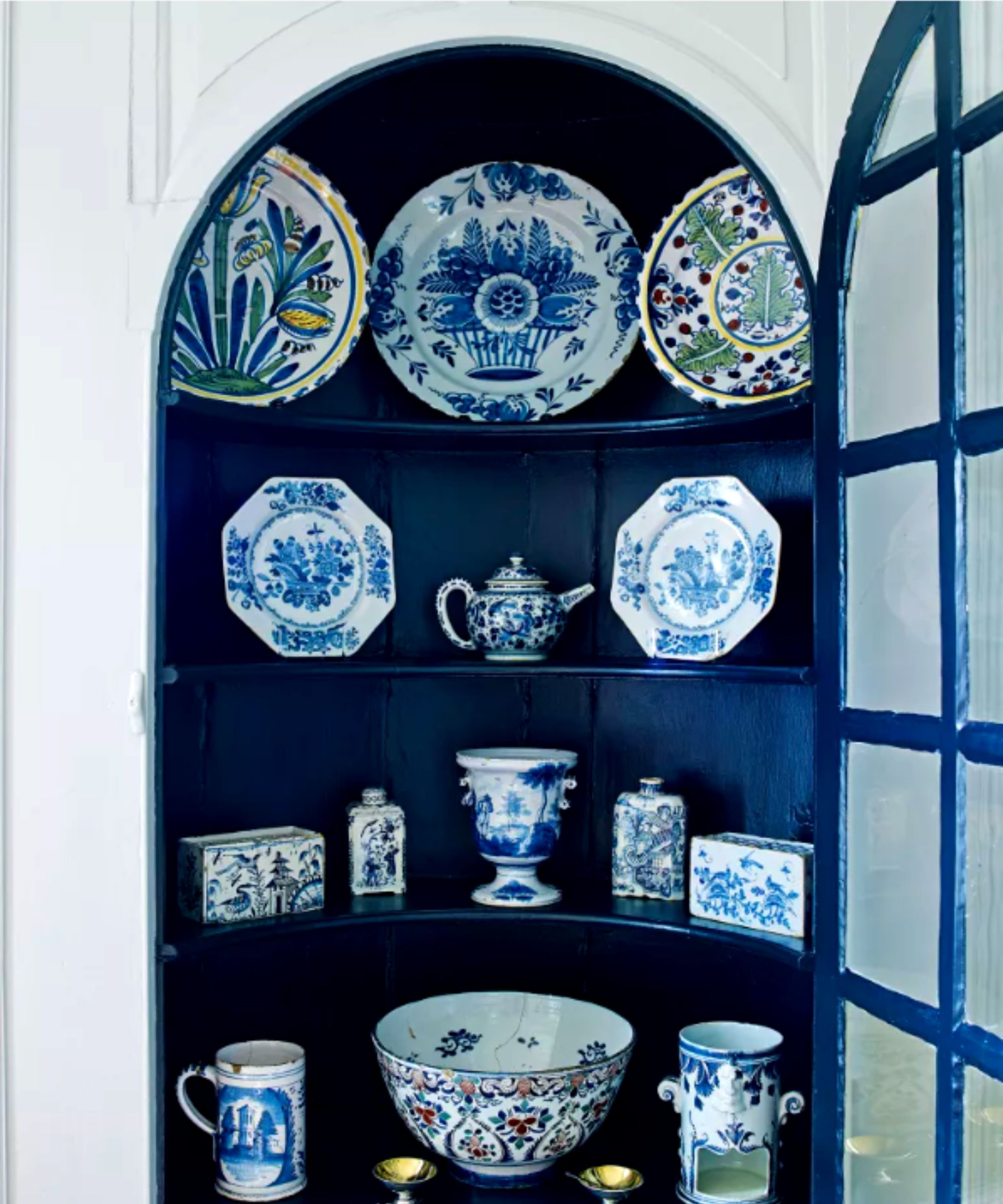
Any item in your kitchen that has printed or hand-painted effects on them should avoid the dishwasher. Whether you have measuring spoons with printed measurements, or hand-painted plates, high temperatures, and high pressure can quickly wipe away the ink and leave your items looking lackluster. Consider washing these items with warm, not hot water and gentle soap – and never use an abrasive sponge.
13. Air fryer baskets
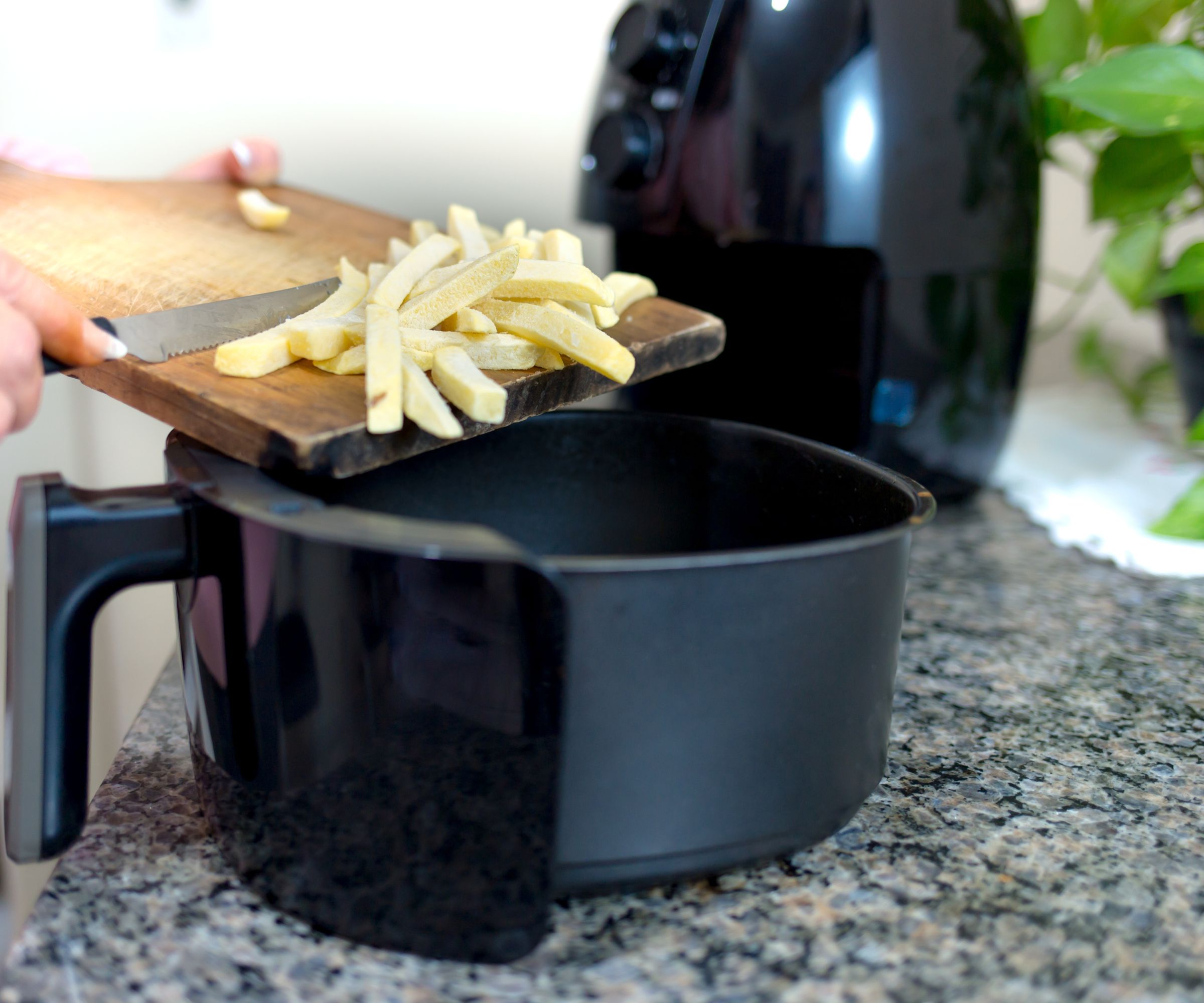
Most air fryers like the Ninja Foodi DZ401 6-in-1 XL 2-Basket Air Fryer (reviewed by us here) say that the baskets are fully dishwasher safe. The caveat to that, however, is that it says just underneath this note in the manual that washing by hand will extend the life of your baskets and their non-stick coating. Most of the time the limited oil used in an air fryer means the baskets are easy enough to wash by hand using a little hot water and soap, meaning a tougher dishwasher cycle is not required.
Can you put pots and pans in a dishwasher?
Most pots and pans are safe to put in the dishwasher, so long as the item doesn't specify ‘not dishwasher safe’ on the base or the instructions. Cast iron pans, for example, and never dishwasher safe. When loading pots and pans into a dishwasher, make sure to do so carefully, ensuring they do not rest on the tines provided to hold items upright. ‘Plates and bowls should be placed between the tines, and not on top of them,’ says Tor Rydder, an organizing expert and the founder of Organizing TV. ‘When your plates and bowls are placed between the tines, it allows the water to move more freely into the top shelf of the dishwasher. Putting anything on top of the tines will stop this and hinder the cleaning of items on the top shelf.’
Why put an aluminum foil ball in a dishwasher?
Adding an aluminum foil ball to the flatware holder of your dishwasher can help to get silverware gleaming once again without scrubbing. The foil ball interacts with the dish detergent, lifting the tarnish off of the cutlery and making it look new once again.
Next learn why our writer will never use her dishwasher without loading lemons in it again.
Sign up to the Homes & Gardens newsletter
Design expertise in your inbox – from inspiring decorating ideas and beautiful celebrity homes to practical gardening advice and shopping round-ups.

Chiana has been at Homes & Gardens for two years and is our resident 'queen' of non-toxic living. She spends most of her time producing content for the Solved section of the website, helping readers get the most out of their homes through clever decluttering, cleaning, and tidying tips. She was named one of Fixr's top home improvement journalists in 2024.
-
 Everyone is obsessed with vintage tiles right now – bring the nostalgic charm of this classic design feature into your home with our 5 design ideas
Everyone is obsessed with vintage tiles right now – bring the nostalgic charm of this classic design feature into your home with our 5 design ideasHonor the past with our favorite ways to decorate with vintage tiles, as suggested by interior design experts
By Eleanor Richardson Published
-
 'It's a fast reset button' – using the 1, 2 ,3 ,4, 5 decluttering method cleared my persistent mess in seconds
'It's a fast reset button' – using the 1, 2 ,3 ,4, 5 decluttering method cleared my persistent mess in secondsIt's easy, effective and so quick to do
By Ottilie Blackhall Published